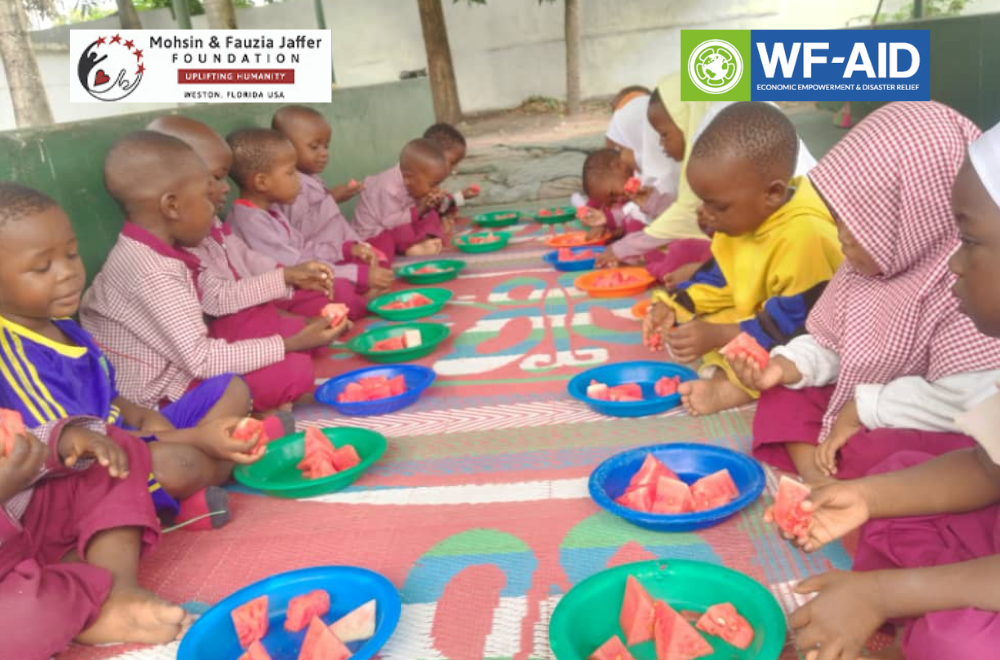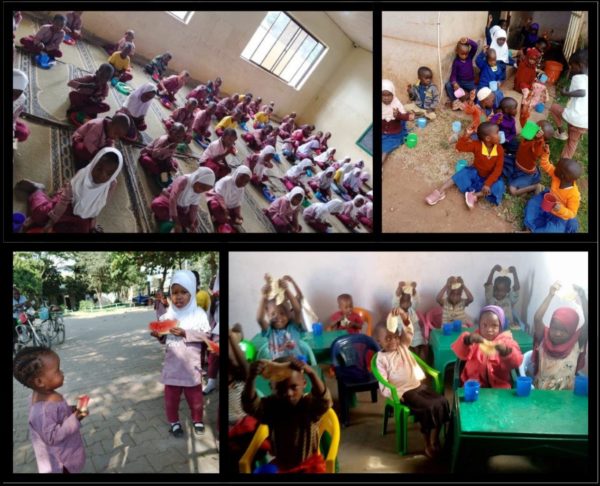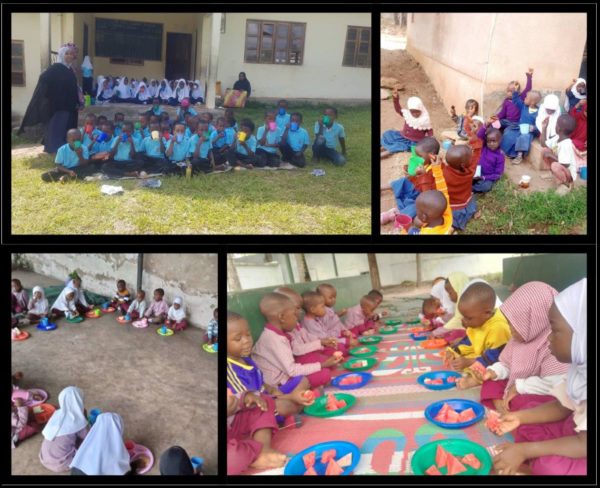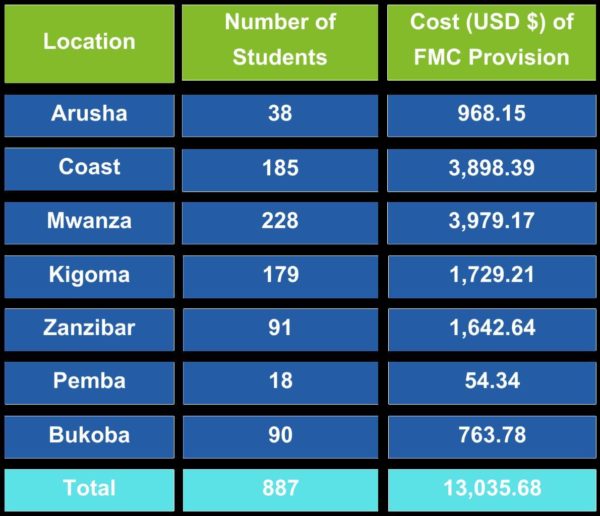

WF-AID would like to extend its deepest gratitude to the Mohsin and Fauzia Jaffer Foundation, for their generous contribution in providing breakfast school meals to the nursery children in Tanzania.
As part of the Millennium Development Goals of the 2000’s, government schools ensure that all children in the local area are enrolled in primary education. However, The Ministry of Education and Vocational Training has set the standard that no student will be able to enroll in primary education without passing nursery education first. This creates vulnerabilities amongst many poor families living in Tanzania.
Up until 2022, around 4% of the world’s population in extreme poverty lived in Tanzania. Consequently, many families struggled to afford basic needs such as food, clothing and shelter. In addition, long hours at nursery meant families couldn’t feed their children before school – causing many dropouts.
This report will provide quantitative and qualitative insights into the impact that your donation is having on destitute children.
Bilal Muslim Mission
The Bilal Muslim Mission is a dedicated non-profit organisation committed to advancing the principles of Islamic teachings while addressing the socio-economic needs of the local communities. Established with a vision of compassion and service, the Bilal Muslim Mission has been actively engaged in various educational, healthcare, and social welfare initiatives across Tanzania. Amongst its many initiatives, the Bilal Muslim Mission places heavy emphasis on providing education for all. Their aim is to bridge the knowledge gap by providing educational programs with the skills and knowledge necessary for personal and community development.

Project Impact
The Fill My Cup Program, in Tanzania, has successfully helped decrease the number of children missing out on an education as the provision of meals motivated many impoverished parents to enroll their children to receive food in addition to education. This helps to break the cycle of poverty.
The provision of sufficient morning meals enables students to perform academically to the best of their abilities, which can lead to higher education opportunities and greater employment prospects in the future.

Financial Breakdown
At the beginning of 2023, an amount of USD $3,249 was carried forward from the 2022 balance, after which a total of USD $16,038 was remitted throughout the year. A total of USD $13,035.68 was utilised to fill the cups of up to 887 students in the Bilal centres of Arusha, Coast, Mwanza, Kigoma, Pemba, Bukoba and Zanzibar in 2023. USD $6,251.32 remained as a surplus to be carried forward in 2024.

Beneficiaries
In 2023, your generous donation has helped WF-AID provide daily breakfast and fruit to a total of 887 students across all Bilal Nursery schools in Tanzania, supporting their education and ability to focus on their studies.
This impact of this initiative has been incredible, with noticeable improvements in the academic performance of these children. This improved academic performance will provide them with better opportunities in the future, ultimately helping to break the cycle of poverty in their communities.
The children who benefited from this initiative ranged in ages from 2 to 14 years old.
Story 1 - Songea Bilal Nursery
The majority of parents rely on agriculture as a means of income. The majority can’t afford their basic needs. Parents are unable to pay tuition fees of their students and it is very difficult for them to acquire other basic needs for their children. Breakfast in the school is difficult to provide and causing many students to drop out because of hunger during the study times.
Story 2 - Ikwiriri Nursery School
Agriculture is the backbone of all our activities as the major means of earning income for our survival. The COVID situation and floods have had a lot of negative impacts on our situation. This has caused contributions from parents to their children’s education to be a lot lower and the majority of them face consequences in their studying. Having the project in the Nursery around Ikwiriri brought a lot of calm to the situation and gave majority of the students ability to be available in the Nursery school and they will be able to join the Primary school when they finish this stage.
Story 3 - Sukaina Hussein
“I come from a very poor family, in our home we can’t manage to have 3 meals a day. Normally, we get food in the afternoon or evening and sometimes we do not have food at home and are supposed to go to our aunt’s home looking for food.”
Having the project in the centre at least gives one meal to the students and reduces the amount of suffering to the children in their home when they don’t have food three times a day. The majority of households in the village depend on agriculture as the means of their income for their families’ survival. It is well known in Tanzania that, most of the farmers are using the traditional methods of farming which leads to poor harvest and prolonged sustainability.

